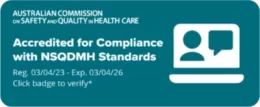Accessibility Tools
- Content scaling 100%
- Font size 100%
- Line height 100%
- Letter spacing 100%
The SANE Blog

Caring for someone with BPD: what it’s really like
Every relationship has its ups and downs, but when one partner is diagnosed with a mental illness, it can add an extra pressure. When your carer is also your spouse, it is important for both partners to look after themselves and each other. Todd and Natalie have worked together to manage Todd's mental illness since he was first diagnosed six years ago.
On getting a diagnosis
Todd: Everything for me started when I was about five and my parents split up. I was having anxiety attacks but I didn't know what they were. I had a deep fear of loneliness.In high school, it felt like I never fitted in anywhere. I was quite a loner.
About six years ago I got diagnosed with bipolar, and went on medication. I did cognitive behaviour therapy (CBT) for a few years, but the therapist said she didn't think it was bipolar. We saw a psychiatrist who recommended dialectical behaviour therapy (DBT) instead of CBT and diagnosed borderline personality disorder. It was an uphill battle from there.
Natalie: Things would be okay for a month or two, then fall apart. It was about seven years ago that he started self-harming. That was very confronting. He was suicidal and I took six weeks off work to look after him. Every time I left the house he would try to hurt himself.
At the time, I remember him saying, 'thank god, I'm not crazy'. It gave us a path forward and gave us hope. Todd is an alcoholic as well, which was his way of coping.
Todd: Being diagnosed put everything into place for me. Finally, I knew what was wrong. For years and years, I knew something was wrong but just thought it was normal. It was a relief to put a name to it.
At the time, I remember him saying, 'thank god, I'm not crazy'. It gave us a path forward and gave us hope.
On getting treatment
Todd: It's funny because sometimes when things are going right, I forget I have BPD. I've occasionally thought I was better and stopped my medication, but the biggest thing is that it makes me not sleep. Now I take my medication regardless of how I am feeling. It keeps me on an even keel.
Natalie: Because we struggled to find support services around us with an understanding of BPD, I did training for the Family Connections program, which is an education program for families and carers of people with BPD. I pounded the pavement and found six people who also received training. Now Canberra has a pretty strong Family Connections program.
The program was a huge help. We learned about what BPD is, and DBT skills to empower the families and carers. The thing that I've learned is that when you've lost hope, that's when you need to get help. Sometimes you're just so overwhelmed and rundown that you just can't see any hope.
On their relationship
Todd: Natalie had to put up with my mood swings and dysregulation and all of it. We have been together for seventeen years now, but she basically has had to put up with a lot. She started learning about borderline to help me.
This is the longest relationship that I've ever had. We have split up a few times because of the borderline as it just got too much for both of us and I had to be on my own.
Natalie: Once I learned about the DBT techniques, I knew that it wasn't that Todd had bad behaviour, but he had a mental illness and his brain is wired in a different way. The power of his fear of abandonment, whether that's real or perceived, is huge. It's why he would get distressed when I left. We've had to work together as a team to manage his illness.
We made a commitment that he would look after him, I would look after me, and we would look after us. That became our mantra.
More to read...
- Read SANE's Factsheet and Guide on BPD
- Protecting a relationship when caring for someone
- Could it be BPD?
Related Posts
By accepting you will be accessing a service provided by a third-party external to https://www.sane.org/










